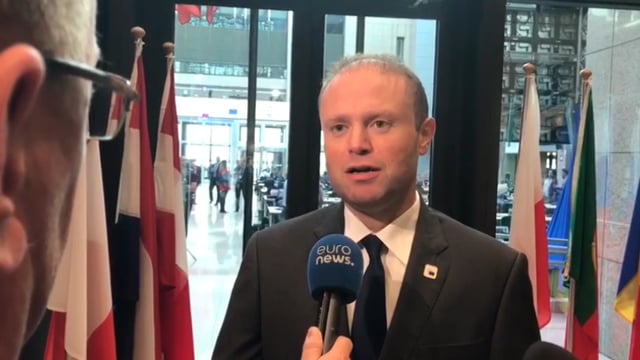[WATCH] Joseph Muscat: ‘Absolutely no’ Brexit negotiations before London triggers exit process
Malta’s prime minister Joseph Muscat is disappointed that the European Union has once again failed to approve the draft Ceta deal: ‘I don’t know with whom the EU can reach an agreement if not with a progressive country such as Canada’


There “absolutely cannot be” any discussions on Brexit negotiations before UK Prime Minister Theresa May actually triggers the exit process, Prime Minister Joseph Muscat said today.
Commenting at the end of a two-day meeting of the European Council, Muscat said that anyone who thought there would be any talk of negotiations before the London formally notifies the European Union of its intention to leave, was mistaken.
The Maltese prime minister reiterated that there cannot be any sort of decoupling of the four freedoms that stand at the core of the EU project.
“The freedom of movement of persons is an essential party which gives access to the single market. This must be respected,” Muscat reiterated.
From Brexit, Malta stands to both benefit and lose. Muscat said it will be “an issue of synergies”.
“Companies and enterprises will be looking for alternative seats and investments within Europe. Malta is one the very few EU countries with common law, derived from the British system … we are at an advantage when compared to other countries,” Muscat said.
Muscat expressed his disappointment over the EU’s failure to approve a landmark EU-Canada deal, which has been blocked by Belgium’s Wallonia region.
The Comprehensive Economic and Trade Agreement (CETA) is a proposed free-trade agreement between Canada and the European Union. Wallonia however insists that Ceta is a threat to farmers and welfare standards.
The Belgian region’s position has brought the trade deal to a deadlock, putting the EU’s credibility at stake in trade negotiations.
“I am very disappointed,” Muscat said. “If Europe cannot conclude an agreement with one of the most progressive countries in the world, I don’t know with whom such a deal can be reached.”
Muscat said that Ceta was not “a TTIP by backdoor” but a positive agreement.
He argued, that the current deadlock “showed the disadvantages of the EU”.
“The deal is being blocked by a regional government … it shows you the disadvantages of the EU system. The delay has put the EU’s international credibility at stake.”
The European leaders ruled out introducing fresh sanctions against Russia for its role in the Syrian conflict.
Muscat described the discussions on Russia as having been “strong”, with leaders showing a greater convergence in condemning the killings in Syria but at the same time recognise the need for “stronger engagement with Russia”.
“We must show where we disagree [with Russia] but Russia is an important neighbour.”






.jpg)
















